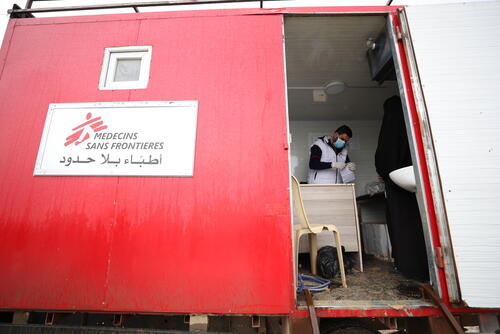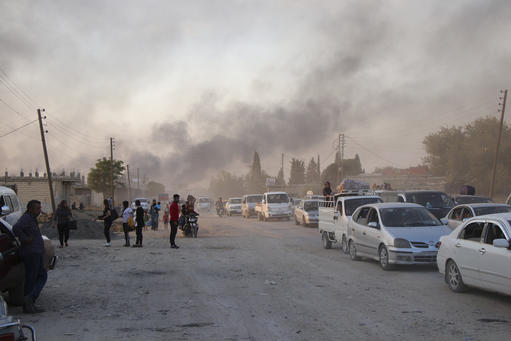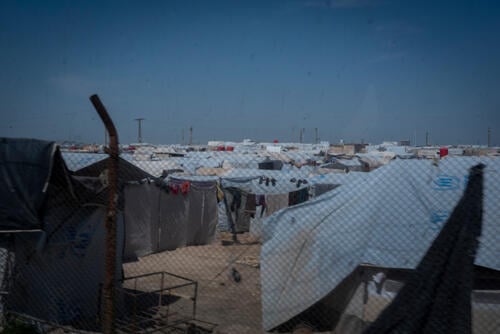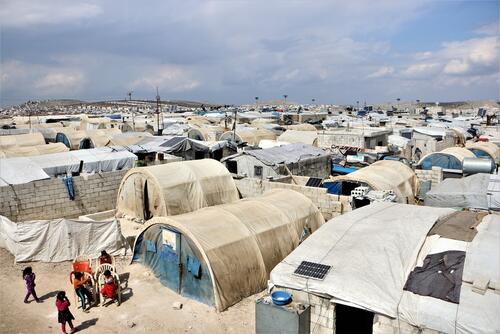On the morning of Monday 26 October, an airstrike hit an area in the north of Idlib governorate, northwest Syria. Local media outlets have reported more than 75 deaths and another 135 injured so far. The vast majority of the injured people were immediately transferred to two hospitals, one of which is a facility co-managed by Médecins Sans Frontières (MSF). We received 11 people, one of whom was dead on arrival.
“When the airstrike happened, the team in our co-managed hospital nearby activated the mass casualty plan,” says Cristian Reynders, MSF project coordinator for northwest Syria. “Soon after, we started receiving critically injured patients in need of surgery. Two patients had badly damaged limbs that had to be amputated and the others needed treatment.”
The airstrike took place in a densely populated area close to the Syrian-Turkish border that does not usually see active conflict. A lot of internally displaced Syrians had fled there during the latest military offensive in northwest Syria, thinking the violence would not reach this area.
Hospitals in this specific area of Idlib governorate are not used to receiving people wounded by airstrikes... The fact that airstrikes are happening there is deeply concerning.Cristian Reynders, MSF project coordinator for northwest Syria
Hours after the incident, hospitals in Idlib were still receiving casualties. In addition to the response at our co-managed hospital, MSF donated a surgical kit with the capacity of 50 surgeries to another health facility that had taken in 90 of the injured.
“Hospitals in this specific area of Idlib governorate are not used to receiving people wounded by airstrikes,” says Reynders. “They are in a zone that is considered relatively safe by the people living there. The fact that airstrikes are happening there is deeply concerning.”
Three times in the past two weeks, MSF co-managed facilities in Idlib have received casualties following airstrikes. On two of these occasions, the facilities activated their mass casualty plans to treat the injured patients coming in.
“Airstrikes in northwest Syria were still taking place close to the frontlines since the latest ceasefire was signed in March 2020”, explains Reynders. “But the fact that they have been increasing in frequency in the past weeks, and are now reaching what are considered safe areas of Idlib governorate, is worrying.”
This recent escalation of violence, in a region of Syria hosting over 1 million internally displaced people, happens as the health system is already impacted by the COVID-19 pandemic.
“There’s a real sense of emergency here, whether you look at the humanitarian setting, the public health emergency related to COVID-19 or the overall situation of conflict,” says Reynders. “The addition of all these elements further complicates what was an already-challenging situation in Idlib.”






